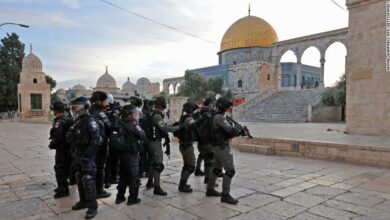Fifty-seven political parties and activist groups announced on Wednesday the establishment of a shadow parliament consisting of 100 members representing various political and intellectual trends.
The activists intend to hold their opening session at the headquarters of the Ghad al-Thawra Party on Friday. The session will be chaired by the oldest member until the parliament's speaker and deputies are elected. The members will also form committees for health, education, industry, national security, democracy, freedoms, social justice and proposals.
The groups include the Union of Revolutionary Youth, the April 6 Youth Movement, the 25 January Revolution Youth Coalition and Youth for Freedom and Justice.
In a conference held at Ghad al-Thawra's main office on Wednesday, activist Mohamed Awwad said they have been working on the idea for three months. He noted that the 100 young members represent nationalist, leftist, liberal, independent and Islamist trends, each occupying 20 percent of its memberships.
Awwad emphasized that the shadow parliament recognizes the legitimacy of the official lower house, the People's Assembly, and is not designed to replace it, but rather to provide expertise to young revolutionary activists who failed to secure representation in the elected Parliament and prepare them to run the next elections.
Hamada al-Kashef, another shadow parliament member, said the new entity will propose laws and ideas in different fields to the People's Assembly and the incoming president.
Activist Amr Hamed announced the shadow parliament's regulations, which stipulate that a member's age should be between 18 and 40, with an intermediate educational certificate at minimum, and have no links with the former ruling regime and no stake in spoiling political life.
Karima al-Hefnawy, a senior leader at the Egyptian Socialist Party, which is awaiting recognition, declared the names of advisers to the shadow parliament. The list includes former MP Gamal Zahran, activist Abdel Galil Mostafa, Ghad al-Thawra's founder Ayman Nour, author Alaa al-Aswany, journalist Hamdy Qandeel, activist Ahmed Derag and law professor Hossam Essa.
During the conference Zahran said the People’s Assembly does not represent the Egyptian revolution, hence the establishment of the shadow parliament
The first Parliament elected following the ouster of former President Hosni Mubarak uprising is dominated by an Islamist majority. Though the elections had been widely assessed as transparent, many revolutionary groups believe the current Parliament, which first convened on 23 January, does not reflect the revolution.
Translated from Al-Masry Al-Youm




